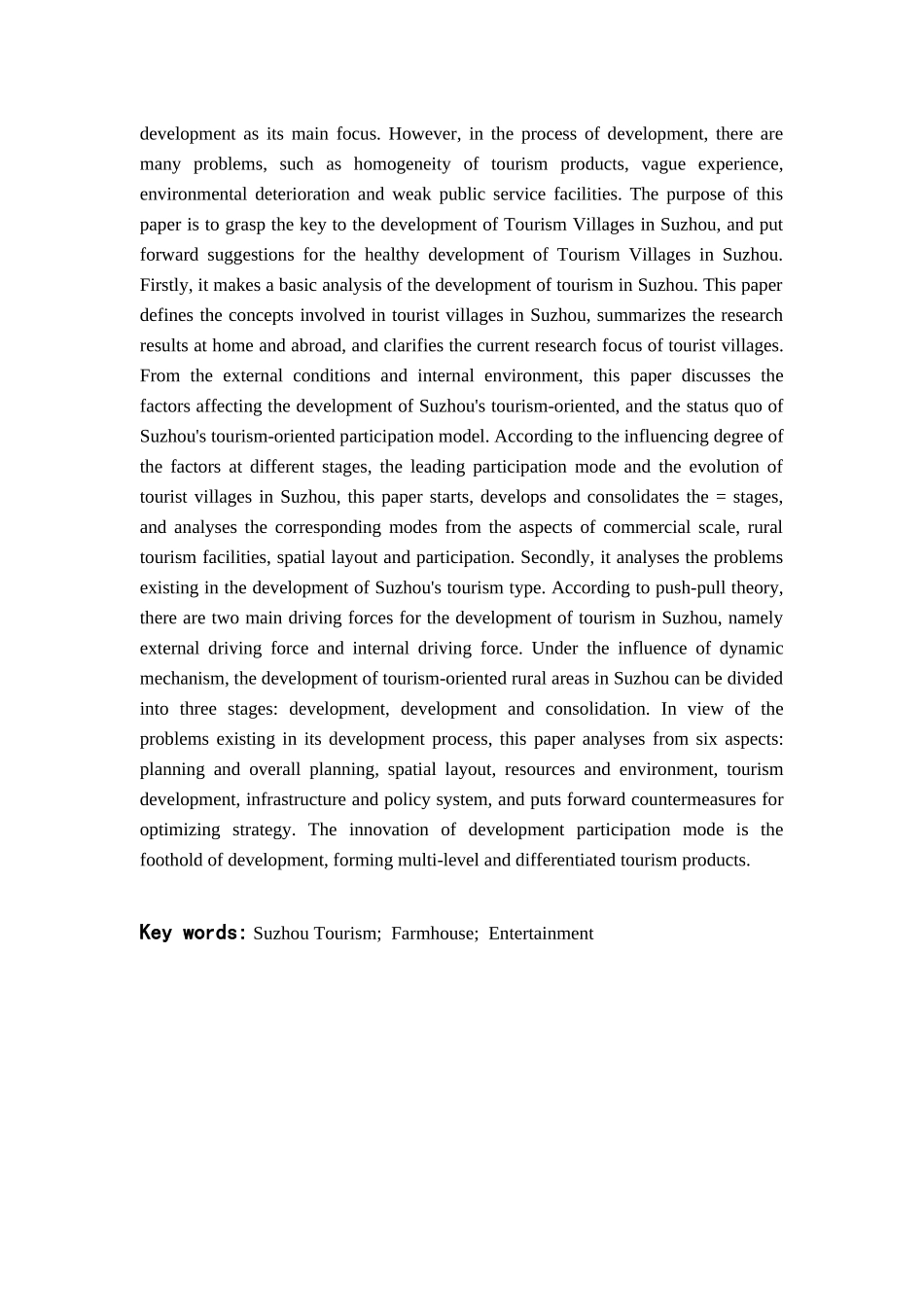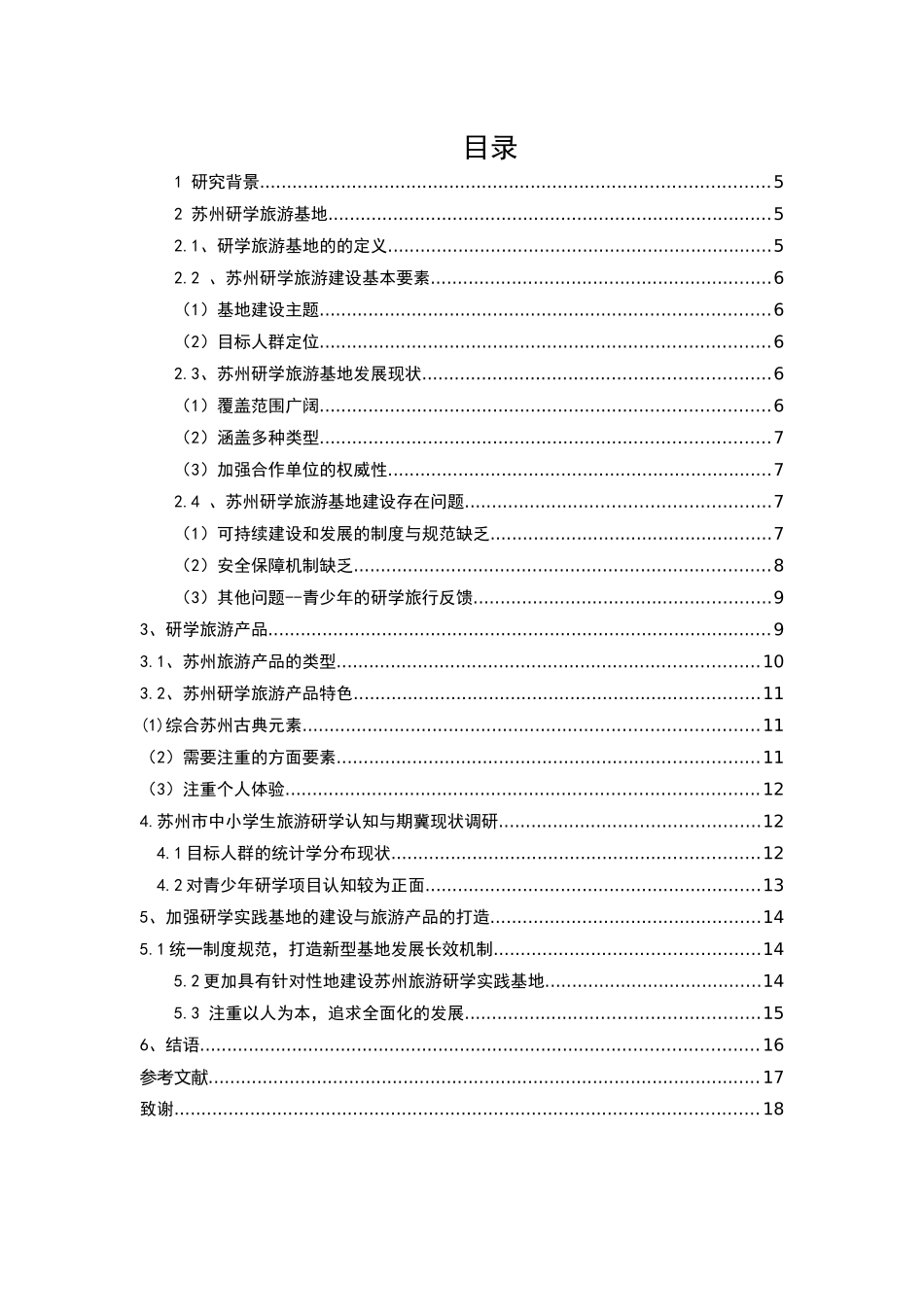州研学旅游基地建设摘 要:随着我国城乡一体化进程的加快,我国发展速度加快,经济结构和产业结构面临转型升级,随着城市发展水平和居民生活水平的提高,拥有旅游资源和土地的村庄也在不断提高。区位优势成为旅游目的地,转变为以旅游开发为主的旅游村。但在发展过程中,面临着旅游产品同质化、经验模糊、环境恶化、公共服务设施薄弱等问题。本文的写作目标是把握苏州旅游型村落发展中问题的关键,为苏州旅游型村落的良性发展提出建议。首先,对苏州旅游型发展进行了基本分析。界定了苏州市旅游型村庄所涉及的概念,总结了国内外的研究成果,明确了目前对旅游型村庄的研究重点。本文从外部条件和内部环境两个方面,探讨了影响苏州旅游型发展的因素,以及苏州旅游型参与模式的现状。根据影响不同阶段因素的影响程度、主导参与模式、苏州旅游型村庄的演变,以启动、发展和巩固=阶段,并从商业规模、乡村旅游设施、空间布局和参与等方面进行相应的分析模式。其次,分析了苏州旅游型发展中存在的问题。根据推拉理论,苏州旅游型发展主要有两大驱动力,即外部驱动力和内部驱动力。在动力机制的影响下,苏州旅游型乡村的发展分为发展、发展和巩固三个阶段。针对其发展过程中存在的各种问题,从规划与总体规划、空间布局、资源与环境、旅游发展、基础设施与政策体系等六个方面进行分析,提出优化战略的对策。发展参与模式创新是发展的立足点,形成多层次、差异化的旅游产品。”关键词:城乡一体 苏州旅游 传统农家乐Abstract : With the acceleration of the process of urban-rural integration in China, the speed of development in China is accelerating. The economic structure and industrial structure are facing transformation and upgrading. With the improvement of urban development level and living standard of residents, the villages with tourism resources and land are constantly improving. Location advantage has become a tourist destination, which has been transformed into a tourism village with tourism development as its main focus. However, in the process of development, there are many problems, such as homogeneity of tourism products, vague experience, environmental deterioration and ...


